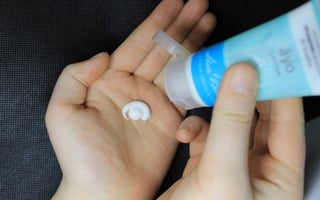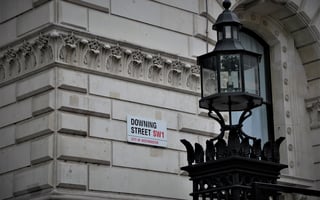It has been another challenging year, hasn’t it?
It has not been a good week for the royal family.
A joint investigation by The Sunday Times and Channel 4's Dispatches has reported that King Charles and Prince William's private estates are taking millions from public bodies.
This includes the NHS, armed forces, and state schools.
And it has plunged the monarchy into crisis media management mode.
The investigation examined the land and properties the two royals own through the Duchies of Lancaster and Cornwall.
Among the claims set out in The King, The Prince & Their Secret Millions on Sunday were that the Duchy of Lancaster has agreed an £11.4m deal with the NHS to store electric ambulances in one of its warehouses.
The Royals make millions in profit each year, but this has always been shrouded in secrecy, until now.
— Channel 4 Dispatches (@C4Dispatches) November 2, 2024
A joint @C4Dispatches and @thetimes investigation reveals that the King and Prince William are receiving public money through leasing property to public services like the NHS. pic.twitter.com/a1R0InLA25🔺EXCLUSIVE: King Charles and his eldest son make millions from feudal levies on schools, hospitals, homeowners and the very charities they represent, a joint investigation by The Sunday Times and @C4Dispatches reveals today https://t.co/Vno5Q348mG
— The Times and The Sunday Times (@thetimes) November 2, 2024
The Duchy of Cornwall reportedly has a £37m deal to lease Dartmoor prison to the Ministry of Justice. The failing building does not currently house any prisoners.
It has also charged the navy more than £1m to build and use jetties and moor warships on the Cornish coastline.
Leading charities, including Macmillan Cancer Support and Comic Relief, have paid millions to rent office space in a royal estate building.
There are also leases with state schools that will bring in around £600,000.
If that is not bad enough, Prince William faces ‘rogue landlord’ allegations, with The Mirror reporting that some of his rental properties “are riddled with damp and black mould” and fall below the minimum energy performance certificate rating.
If the programme made for uncomfortable viewing for the royal family, the subsequent headlines created as the story was picked up by other media would have only added to the discomfort.
Here are a few examples:
If the story had not broken days before the US election, you wonder how much more coverage it would have generated.
The programme revealed that the two most senior members of the royal family make £50m a year from their estates.
A big figure – and both estates are exempt from paying Corporation Tax or Capital Gains Tax.
But the amount itself is not the issue.
The problem – and reputational hit - is where the money comes from.
Should the monarch make money from the cash-strapped NHS, state schools and other public services?
Should the royals profit from charities?
Perhaps not if they want to avoid accusations of being ‘money-grabbing’.
The optics are not good. It would not look good when the country is doing well, let alone when people have been struggling with a cost-of-living crisis for years and are being asked to pay more to fix public finances.
It all feels unsavoury.
So, what have the estates said?
Both responded to the claims set out in the programme with a statement.
A Duchy of Cornwall spokesperson said it is "a private estate with a commercial imperative which we achieve alongside our commitment to restoring the natural environment and generating positive social impact for our communities".
A spokesperson for the Duchy of Lancaster said it operates "as a commercial company, managing a broad range of land and property assets across England and Wales". It added that while the King "takes a close interest" in the work of the duchy, day-to-day management of the portfolio is the responsibility of the council and executive team.”
Those responses will do little to ease the concerns of viewers and readers. Or taxpayers wondering why they are paying for the NHS to rent a warehouse from the royal family.
It’s a right royal mess and not an easy or quick crisis to solve.
We can probably rule out a Prince Andrew-style Newsnight interview to try to turn this one around. You would assume some crisis communication lessons have been learnt.
But it may need to make some form of sacrifice to show its commitment to change, something many organisations have done as part of their crisis media management. Perhaps a move to peppercorn rents for public bodies using its land and buildings. Or returning the rent money to the NHS. And a commitment to greater transparency of royal finances.
Longer-term, they may need to abolish their private estates altogether.
The court of public opinion matters. And at the moment, the royals need to turn around the direction of media coverage and social media conversations.
Media First are media and communications training specialists with more than 35 years of experience.
We have a team of trainers, each with decades of experience working as journalists, presenters, communications coaches and media trainers.
Click here to find out more about our crisis communication training courses.




